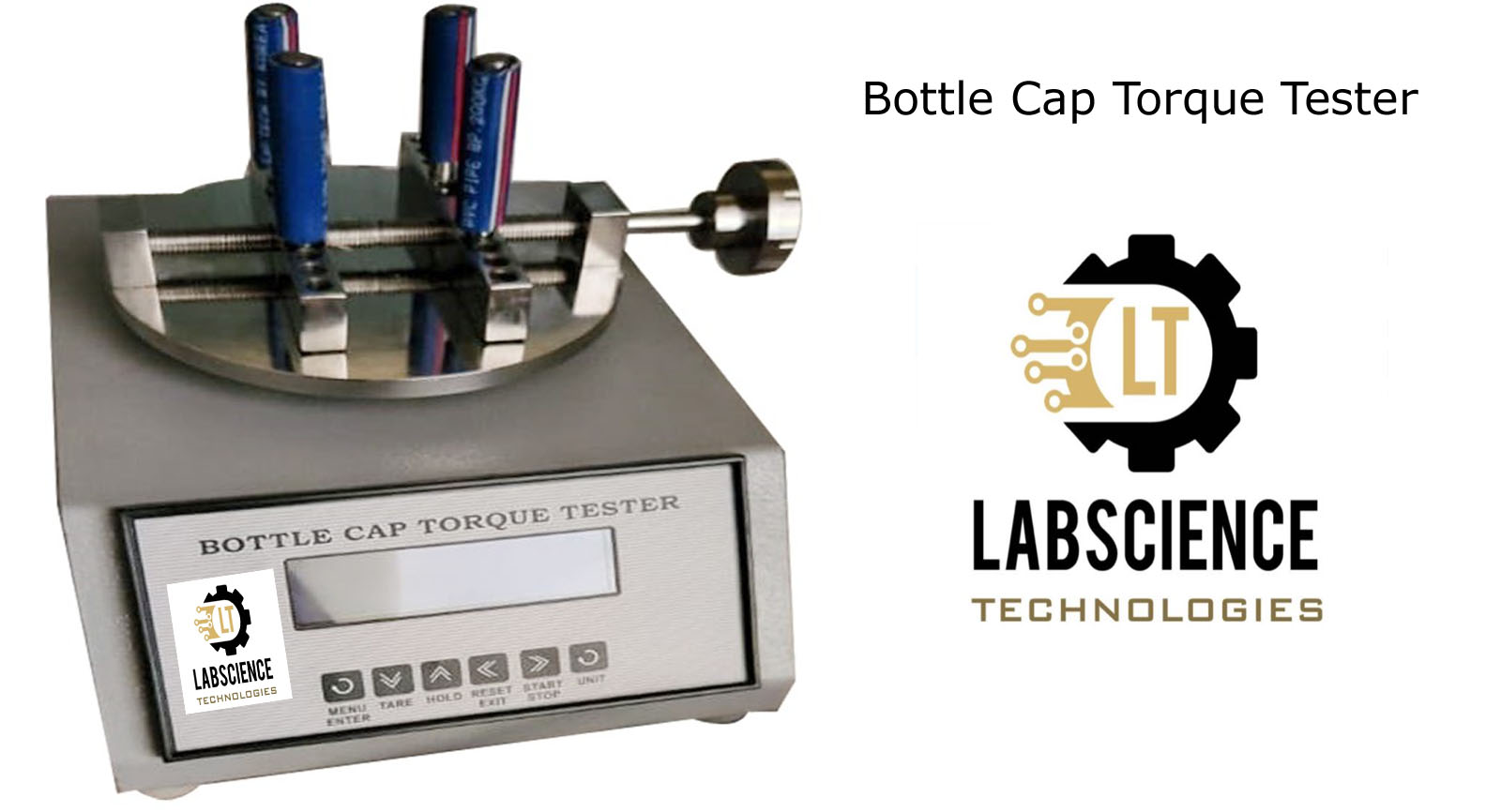Understanding Bottle Torque Testers: Ensuring Quality and Consistency in Packaging
In the packaging industry, ensuring the appropriate tightness of bottle caps is critical for product quality, safety, and user experience. Bottle torque testers are specialized devices that measure the force, or torque, required to open or close a bottle cap, ensuring they meet industry standards. This testing is vital across various industries like food, beverage, cosmetics, and pharmaceuticals, where safe and reliable packaging is essential. Here’s a comprehensive look at the types, features, and applications of bottle torque testers.
Types of Bottle Torque Testers
Manual Bottle Cap Torque Tester
A manual bottle cap torque tester provides a straightforward and cost-effective option for smaller facilities. By manually measuring torque, operators can achieve accurate results, though this type is best suited for low-volume environments.Digital Bottle Torque Tester
With a digital bottle torque tester, measurements are displayed on a digital interface, providing higher precision and ease of data logging. This is ideal for laboratory testing and ensures consistency and reliability.Handheld Bottle Torque Tester
For flexibility and portability, handheld bottle torque testers allow on-the-go testing across different areas. These are available in digital and manual versions, making them suitable for various testing environments.Automatic Bottle Torque Tester
High-volume production lines benefit from automatic bottle torque testers, which automate the process to reduce errors and increase consistency. These machines are ideal for high-capacity production where rapid, repeatable testing is required.Rotary Torque Tester for Bottles
Rotary testers simulate the actual opening or closing motion, providing a more realistic measurement of cap torque. This is especially useful for analyzing usability, as it mimics the twist a user applies when opening or closing the bottle.
Key Features of Bottle Torque Testers
High Precision and Accuracy
For industries requiring precise measurements, high-precision bottle cap torque testers are invaluable. These testers can detect slight variations in torque, ensuring product consistency and packaging integrity.Portability
Portable testers, like handheld digital bottle cap torque gauges, allow testing flexibility across different production sites. A compact bottle torque testing device is particularly useful in limited spaces or when testing across multiple lines.Data Logging and Analysis
Advanced models come with data logging capabilities that record torque readings, allowing users to analyze trends over time. This feature is useful for quality control teams to ensure consistency and identify any irregularities in cap tightness.Adjustable Sensitivity
Some models offer adjustable sensitivity, which allows operators to set specific torque levels for different cap types. This feature is critical for companies that handle multiple packaging formats, as it provides customized torque measurement for each type.
Importance of Bottle Torque Testing in Quality Control
Maintaining consistent cap tightness helps prevent leaks, contamination, and spoilage. Ensuring bottles meet bottle cap torque measurement standards protects product quality, consumer safety, and brand reputation. Torque tester calibration also plays a role in maintaining industry standards, as it ensures measurements remain accurate over time.
Industries benefit from automated bottle cap torque testing by reducing the time and effort required for manual checks. This is particularly important in high-capacity production environments where large numbers of bottles need to be tested rapidly. Accurate torque measurements can prevent product returns or recalls due to packaging failures.
Industry Applications of Bottle Torque Testers
Pharmaceuticals
Proper sealing in pharmaceuticals is critical to prevent contamination and maintain the effectiveness of drugs. Bottle cap seal integrity testers are commonly used to verify that caps meet strict sealing requirements.Food and Beverage
Consistent torque levels help preserve product freshness in the food and beverage industry. Torque testers for bottles ensure that caps are applied tightly enough to avoid leaks but not so tight that consumers struggle to open them.Cosmetics
In cosmetics, product integrity and ease of use are essential. Handheld bottle torque testers and digital bottle torque testers are used to ensure that cosmetic bottles meet torque standards, providing consumers with both quality and convenience.
Selecting the Right Bottle Torque Tester
Choosing the correct tester depends on factors such as production volume, testing frequency, and required precision. Precision torque testers for bottle caps are often preferred in lab environments, while high-capacity bottle torque testers are ideal for high-volume production lines.
Portable options like lightweight bottle torque testers provide flexibility, allowing teams to test in various locations. For high-volume environments, industrial-grade bottle torque testers offer durability and reliability for frequent use.
The Benefits of Automated Torque Testing
Automated torque testers enhance testing speed and consistency. Automated torque measurement for bottle caps is essential in large-scale production environments, where repeatability and accuracy are required. By using automation, companies can achieve consistent torque readings across entire production batches, minimizing the potential for errors.
Real-time torque measurement for bottle caps enables production adjustments on the spot, helping prevent issues from reaching the packaging stage. With bottle torque test automation systems, companies can focus on efficiency without sacrificing quality.
Advanced Capabilities of Bottle Torque Testers
Modern torque testers feature advanced options like torque limit testing for bottle closures and real-time data analysis. Advanced testers provide customizable torque testing equipment that allows operators to set specific torque levels and monitor changes over time. Multi-functional testers, capable of handling a variety of cap types and sizes, provide greater versatility for companies with diverse product lines.
For long-term usage, durable bottle torque testing devices are essential. Many testers are designed to withstand frequent testing cycles and ensure reliability over extended periods. High-speed testing options allow for efficient quality assurance without slowing down production.
Conclusion
Bottle torque testers are essential tools in the packaging industry for ensuring product safety, consistency, and consumer satisfaction. From manual bottle cap torque testers to automated high-precision models, these devices support quality control in various industries, helping companies meet regulatory standards and deliver reliable products. Investing in the right torque tester enables manufacturers to protect their products, adhere to industry standards, and enhance customer satisfaction through reliable, user-friendly packaging.

